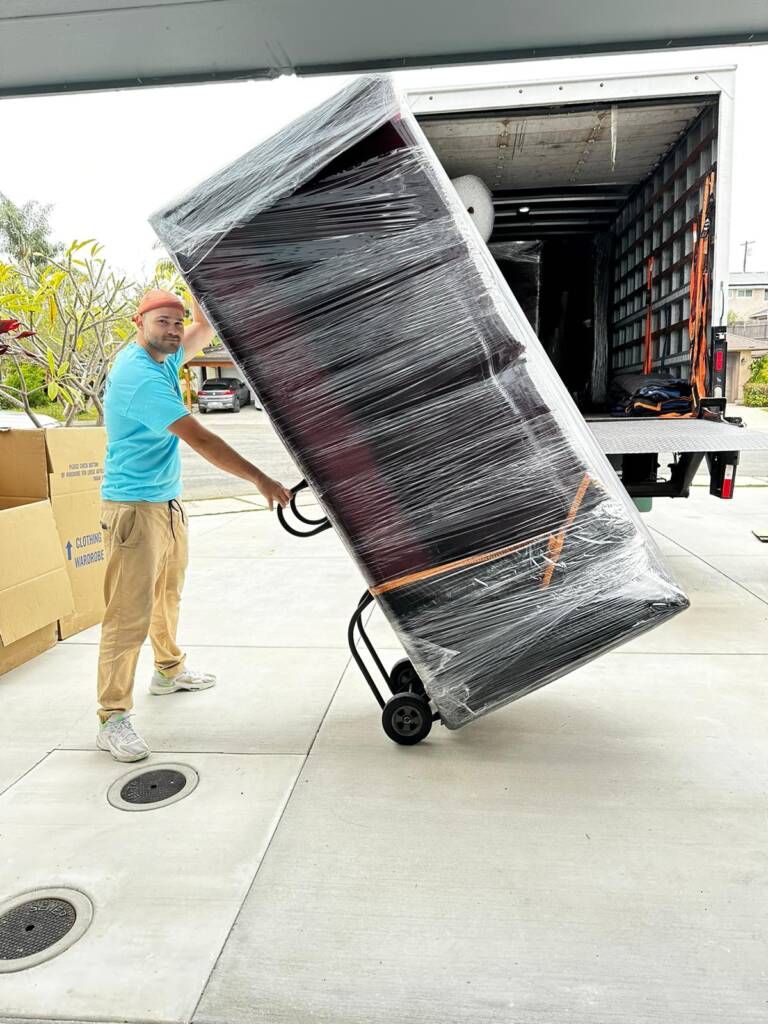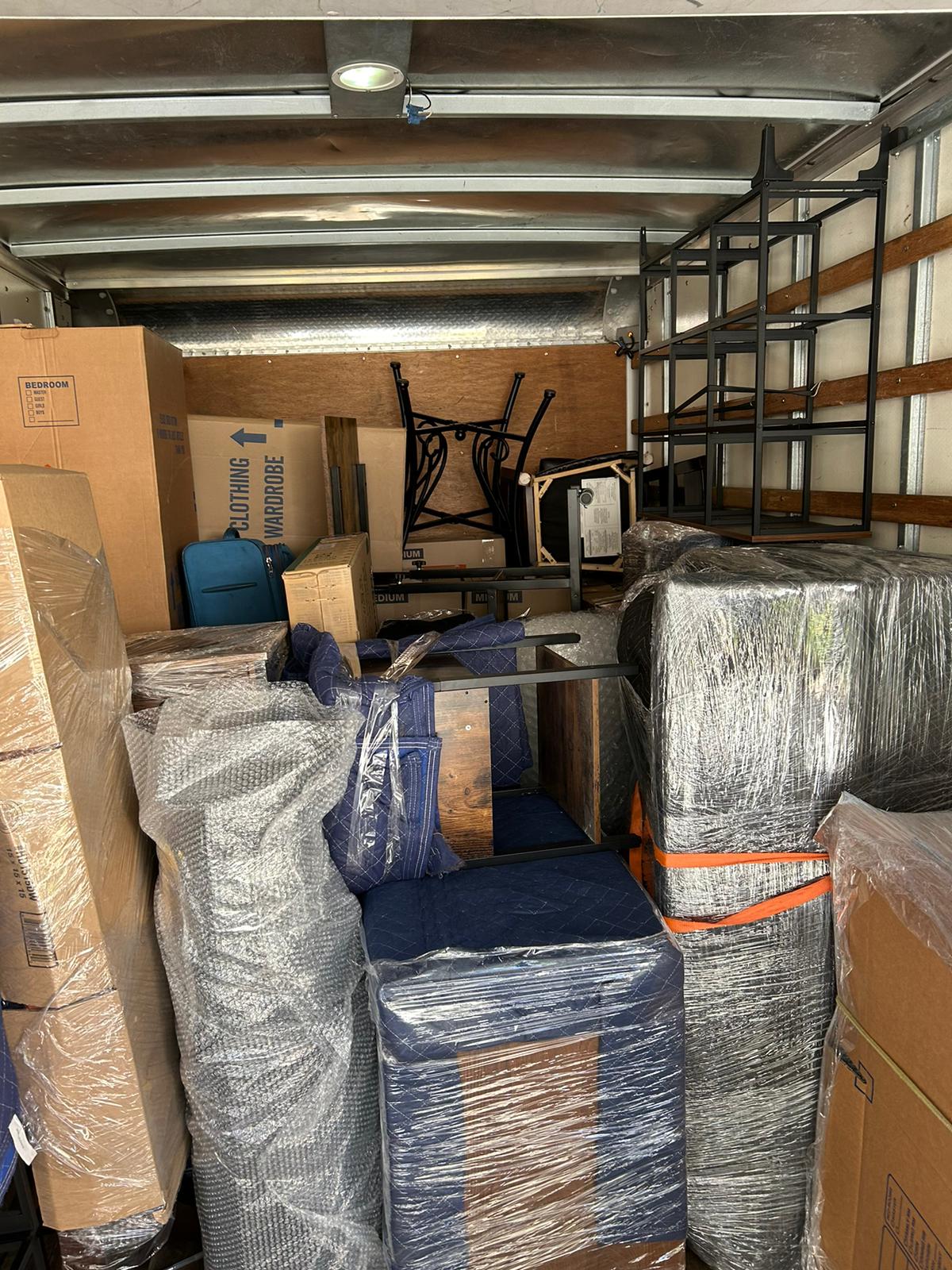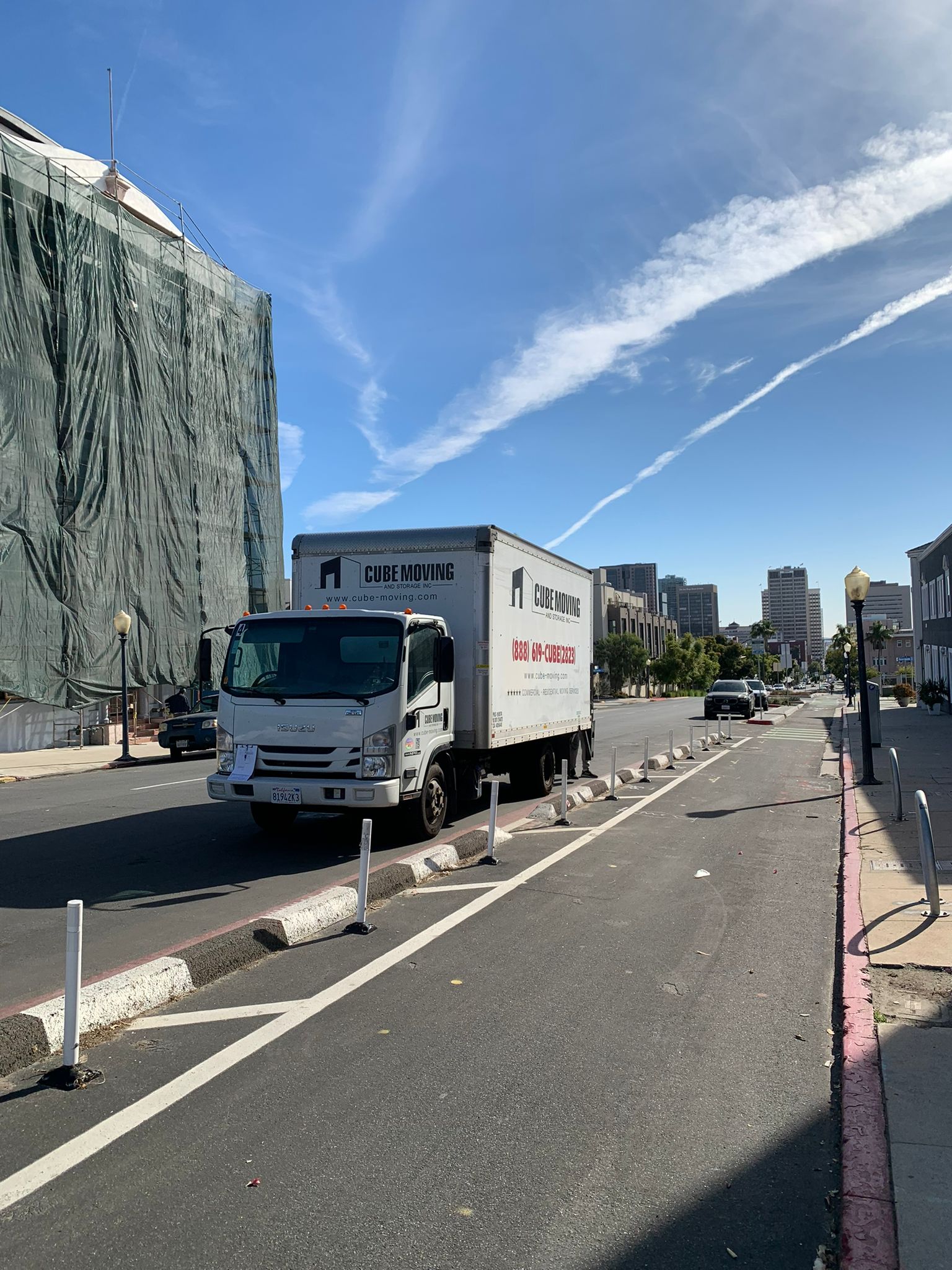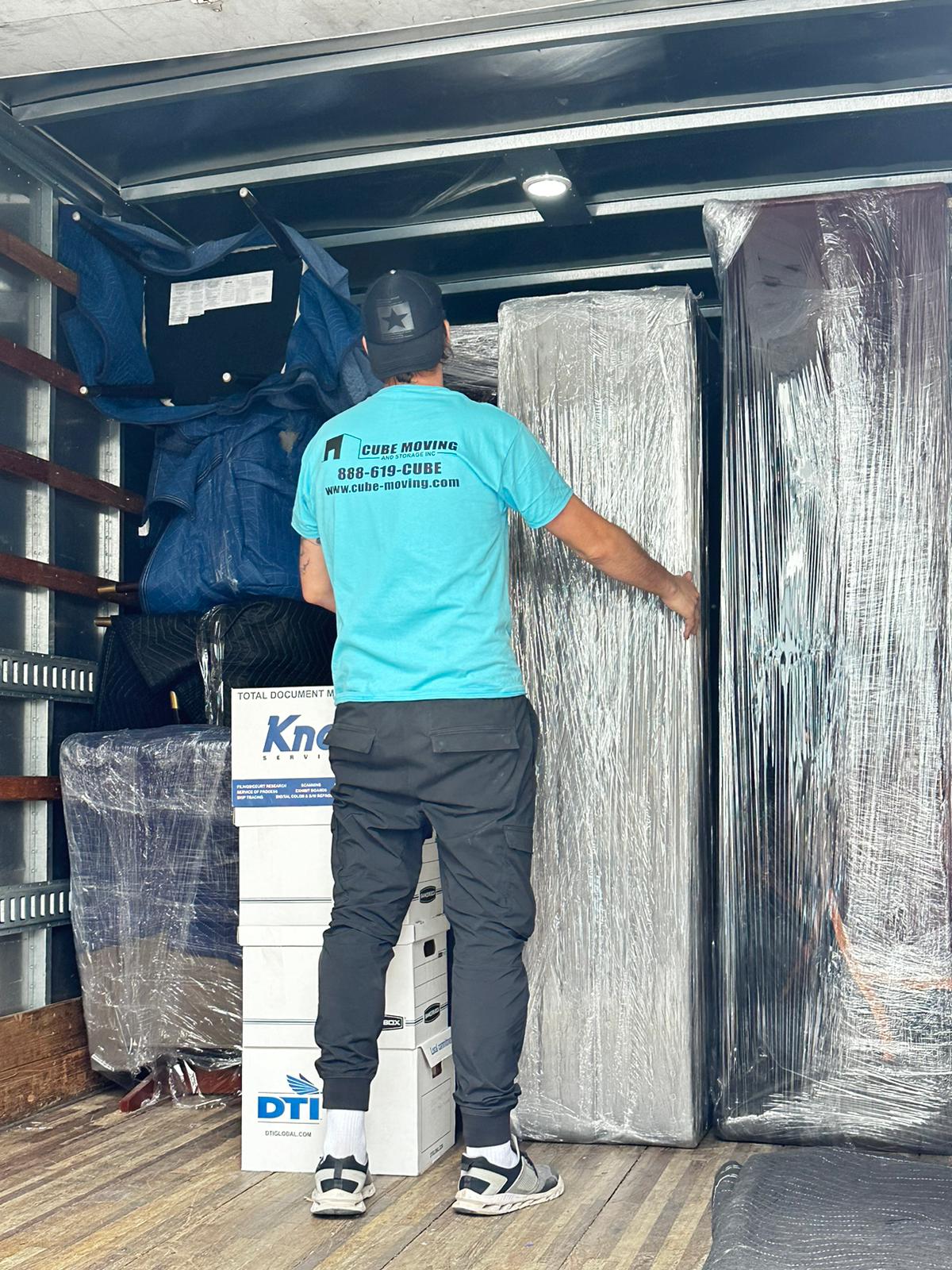Premium long distance movers San Diego: Safe & secure relocation
Imagine you’ve just landed your dream job across the country, but the thought of moving dampens your excitement.
Navigating the complex terrain of arranging a long-distance move can overwhelm even the most organized individuals.
Choosing the right partner to orchestrate your relocation is critical; expertise and reliability can make all the difference in such transitions.
Choosing Experienced Movers

Selecting a moving company with a robust track record is imperative. Professionals who specialize in long distance relocations bring an essential blend of expertise, efficiency, and understanding of interstate regulations. They ensure your possessions are protected and adeptly navigate logistical challenges, transforming a potentially taxing experience into a seamless process.
In vetting movers, look beyond mere years in business to their operational integrity. Seek out companies that boast an amalgamation of positive customer testimonials, necessary licensing (like the U.S. DOT number for interstate moves), and comprehensive insurance options. This due diligence lays the foundation for a move that’s executed with precision, safeguarding your treasured belongings every mile of the journey.
Essential Qualifications to Look For
Recognizing proficient long-distance movers is paramount. It requires knowledge of regulatory compliance, encompassing both state and federal transportation laws, which govern interstate relocations.
As you delve into mover credentials, prioritize entities that carry the American Moving and Storage Association’s ProMover certification. This designation signifies adherence to ethical practices and a commitment to ongoing professional development in the moving industry.
Expert movers mitigate risks, utilizing advanced techniques while adhering to stringent safety protocols for the security of your valuables.
Engage with movers who not only project professionalism but also exemplify it through their actions. Transparency in pricing, punctuality, and meticulous handling of your items are hallmarks of seasoned professionals. Trustworthy movers will also facilitate clear communication throughout your moving journey, ensuring a stress-free experience.
Red Flags in Mover Selection
No physical address or online presence is a warning.
Beware of moving companies that demand large deposits or only accept cash; these are financial red flags. Legitimate movers typically require a modest deposit and offer a variety of payment methods. Furthermore, any hesitation to provide references or to conduct an in-home estimate suggests a lack of transparency, which can lead to unexpectedly high costs or compromised service quality.
A mover without a DOT number lacks legitimacy.
Overly generalized or vague language in contracts is a serious concern. When the terms are not specific or clear, it can lead to misinterpretations and potential disagreements during the moving process. Ensure that all agreements are comprehensive and include a detailed inventory of your belongings.
Unchecked complaints with the Better Business Bureau indicate turmoil. Additionally, pay heed to the responsiveness and clarity of communication from the moving company. An established firm should be able to provide a consistent level of customer service, while an absence of these traits hints at a potential for problems throughout the relocation process.
Planning Your Long-Distance Move

Assess your logistics needs and compile an extensive inventory to ease the moving company’s task of providing an accurate estimate and implementing a streamlined relocation plan.
With long-distance moves, consider services like full-service packing, custom crating, and consolidated shipping that experienced movers offer to enhance the safety and efficiency of your transition.
Remember, proper timing and organization are crucial to managing a successful long-haul move without unwarranted stress or complications.
Timeline Coordination
Timely planning is fundamental in harmonizing departure and arrival schedules, ensuring an uninterrupted relocation flow, particularly over longer distances. Professional movers specialize in scrutinizing and aligning these pivotal timelines to minimize any potential disruption to your relocation process.
A methodical approach defines every phase of the move, from packing to delivery dates. Clear deadlines help mitigate risks of delays and accommodate unexpected occurrences.
Movements of goods across state lines often involve intricate logistics, requiring adept coordination between multiple entities. Skilled movers must navigate these complexities seamlessly.
Whether relocating household items or a complete office setup, time-sensitive commitments demand acute synchronization. Experienced movers anticipate variables, such as seasonal influences on transit times, to safeguard your schedule.
It’s crucial to establish a detailed moving timeline, one that includes buffer periods to account for any unforeseen delays. The proficiency by which this is managed is often indicative of a mover’s experience and reliability.
Ultimately, precise timeline management assures one’s peace of mind when transitioning residences, especially over extensive distances. Engage with professionals who prioritize punctual service delivery and have robust mechanisms for timeline adherence.
Item Inventory and Organization
Proper documentation of possessions forms a critical facet of a relocation, enabling a systematic approach to the moving process. Meticulous listing and categorization are imperative for efficient pack-out and placement.
Clear labeling of boxes aids in the swift identification and sorting upon reaching the destination. Such organization minimizes downtime significantly.
Consequently, inventory accuracy ensures the correct items are transported and accounted for, reducing the likelihood of loss or misplacement greatly.
Professional movers employ rigorous inventory protocols, cataloging each item methodically to provide accountability and reduce the potential for error during transit.
Their expertise enables them to create tailored inventorial systems, marking items based on room designation, item fragility, and importance. This facilitates an orderly unpacking and arrangement at your new residence — a testament to thorough preparation.
Ultimately, an effectively managed inventory checklist is your ally in asserting control over the relocation process. Utilize specialized services to streamline this aspect for an organized and stress-free move.
Cost Considerations

Best neighborhoods in San Diego – North Park
Evaluating the cost of long-distance moving services necessitates a thorough insight into various pricing elements, comprising distance rates, the volume of goods transported, and accessorial services that might be essential to your move. These determinants work in unison, outlining the financial blueprint of your moving venture from San Diego.
It’s crucial to request detailed quotations from potential movers, as these will reflect the comprehensive costs associated with your long-distance relocation. Anticipate receiving estimates that encapsulate transportation, labor, and any additional services required to ensure the seamless transition of your belongings.
Understanding Moving Estimates
Moving estimates serve as an initial financial compass, delineating the potential cost associated with your long-distance relocation.
When considering estimates, it’s pertinent to grasp the distinction between non-binding and binding estimates. The former provides a preliminary cost projection, which can fluctuate based on actual weights and services rendered. Conversely, binding estimates guarantee the total cost will not exceed the quoted price, provided no additional services are requested.
Furthermore, there’s the option of a binding not-to-exceed estimate, sometimes known as a guaranteed price or price protection agreement. This favorable scenario offers cost certainty; if the actual weight is lower than estimated, you pay the lesser amount.
For measures of due diligence, ensure the moving company conducts a comprehensive assessment of your belongings. Movers should perform an in-home survey or a virtual inventory to furnish an accurate estimate. Any reputable moving company will also explain the conditions and potential additional costs involved in the moving process, providing transparency and contributing to a stress-free relocation experience.
Additional Fees and Cost-Saving Tips
Beware of potential extra fees that are not included in the initial estimate. These can encompass long carry charges, stair fees, or additional packing materials that may be necessary for the safe transport of your belongings.
Review your contract thoroughly to prevent any unexpected charges. Understand every clause to avoid surprises on your final bill.
Moreover, scheduling your move during off-peak times can lead to significant savings. Avoid the high demand seasons (typically summer months), weekends, and the beginning or end of the month.
Paring down possessions to the essentials by decluttering before moving can lower costs. Less volume translates to reduced transportation fees and could result in smaller storage needs.
Consider packing smaller or non-fragile items yourself to save on professional packing services. Invest time in sourcing discounted or free packing materials from local businesses or online marketplaces.
Finally, inquire about any discount programs the moving company may offer. Membership affiliations, early booking discounts, or seasonal promotions can provide opportunities for additional savings.
Ensuring a Smooth Moving Day
To ensure that the moving day progresses without hiccups, a meticulously organized plan is your linchpin. This involves clear communication with the chosen moving company, securing your valuables, and a thorough final walk-through. Assure the accessibility of your residence to facilitate swift loading and unloading. If possible, reserve parking spaces close to your residence for the moving truck. Preparatory engagement in these logistical details can significantly expedite the moving process, creating a stress-free experience as you transition to your new home.
Pre-Move Preparations
Astute pre-move preparations are pivotal for a seamless transition to your new domicile.
- Declutter and donate items you no longer need to ease your move and reduce costs.
- Create an inventory of items to be moved to manage organization and facilitate unpacking.
- Acquire quality packing materials and consider specialty containers for delicate items.
- Label boxes clearly with contents and intended room for efficient unloading and arrangement.
- Notify important parties—such as banks, service providers, and government agencies—of your impending address change.
- Arrange utilities and services at your new location to ensure immediate functionality upon arrival.
Selecting a reputable and experienced mover is a critical choice that determines the move’s efficacy.
Vigilance in these early stages fosters a move that is not just endured, but masterfully executed.
Essential Day-Of Checklist
Ensure personal essentials are packed separately for easy access during the transition; these should include medications, important documents, and chargers.
Verify the arrival time with your movers to avoid any scheduling conflicts or delays.
Conduct a final walkthrough of every room, checking closets, drawers, and shelves to ensure nothing is left behind or overlooked in the hustle of moving day.
If you are discarding items that didn’t make the cut for the move, ensure they are properly disposed of or set aside for donation. Additionally, having a “first night” box with essentials such as toiletries, a change of clothes, and basic kitchen items can mitigate the disarray of unpacking.
Moving Long-Distance: Frequently Asked Questions

For those planning a long-distance move, it’s common to have questions and concerns. Here are some frequently asked questions to help guide you through the process.
What should I consider when choosing a long-distance moving company?
When selecting a long-distance moving company, it’s important to look for a company with a strong track record, positive customer testimonials, necessary licensing, and comprehensive insurance options. Ensure they adhere to state and federal transportation laws and hold certifications such as the American Moving and Storage Association’s ProMover designation.
What are some red flags to watch out for when choosing a moving company?
Be cautious of moving companies without a physical address or online presence. Avoid companies that demand large cash deposits or only accept cash payments. Be wary of movers who are hesitant to provide references or conduct in-home estimates. Also, a legitimate moving company should have a DOT number and clear, specific language in contracts.
How do I plan a successful long-distance move?
To plan a successful long-distance move, assess your logistics needs and create a detailed inventory of your belongings. Consider services like full-service packing, custom crating, and consolidated shipping to enhance the efficiency and safety of your move. Prioritize timely planning and coordination, establish a detailed moving timeline, and maintain clear communication with your chosen moving company.
How can I manage the cost of a long-distance move?
Understanding the various pricing elements involved is crucial. Request detailed quotations from potential movers, ensuring they encompass transportation, labor, and additional services. Be aware of potential extra fees not included in the initial estimate. Consider off-peak times for moving to potentially save on costs. Additionally, decluttering before the move, packing smaller items yourself, and seeking discounted or free packing materials can help lower expenses.
How can I ensure a smooth moving day?
To ensure a smooth moving day, communicate clearly with your chosen moving company and make sure your residence is easily accessible for loading and unloading. Prepare by decluttering and donating items, creating an inventory, acquiring quality packing materials, labeling boxes, and notifying important parties about your address change. Pack personal essentials separately for easy access, verify arrival time with your movers, conduct a final walkthrough, and have a “first night” box with essentials ready for the initial days in your new home.
What should I consider when choosing an auto transport service?
A: Look for a company with a solid reputation, transparent pricing, and excellent customer reviews. We recommend Tiger Auto Transport for their reliable and efficient vehicle shipping services. They offer door-to-door transport solutions and handle a variety of vehicle types, ensuring your car arrives safely and on time.




Leave A Comment